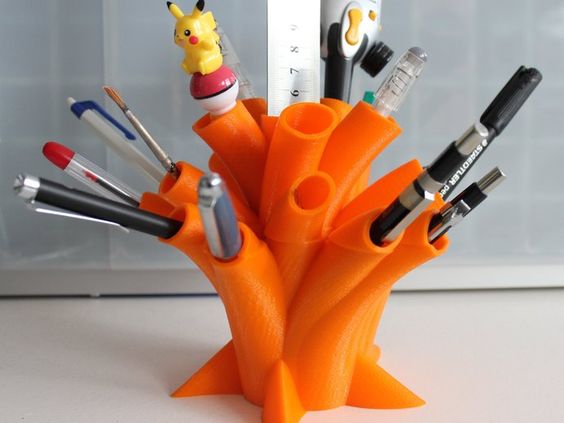What are the most underrated tips for the first school day that can help both parents and kids? The tips are very simple, a product of experience. You might know them and yet I wish someone told me these tips years ago,
TLDR
1. Communicate realistic expectations
2. Minimize logistics but provide backups
3. Extracurricular activities are crucial
4. Teamwork is an acquired skill
5. Focus on curiosity. Learn because it is fun
6. Boredom can be good
7. Master the subjects, rather than grades
8. Step out of the comfort zone
If you need a serious toolset I have a course about teaching, mentoring, coaching, and everything in between:
https://keytostudy.thinkific.com/courses/teaching-and-mentoring-masterclass
1. Communicate realistic expectations
Anna and I have three wonderful kids in various stages of the teenage experience. So I decided to write a post that would work for all five of us. And I will start with something a friend told me long ago. I was very stressed as a parent, and he told me “Relax. No matter what you do, you will somehow mess up and they will find a way to resent you”. This simple advice was magical.
Always communicate realistic expectations. A kid does not need to get the perfect score. The score needs to satisfy the requirements of a good University. And the University does not have to be Ivy League. If it is on the world’s list of 100 best universities, it is more than enough. My university ranked 255 on a global index, and I am fine.
It is better to underpromise and overdeliver than the opposite. A great profession is usually more important than a superb university.
2. Minimize logistics but provide backups
Everything that can go wrong will eventually go wrong. At least this is a good mindset for logistics. The more complex the logistics, the more likely it is to break. For example, I love fountain pens. My kids also love them, but at school, they use only Parker Jotter or bolt action pens. These pens are almost indestructible. And no mechanical pencils: only cheap Faber Castel models. Two of each. That’s it. We are constantly trying to improve our handwriting and use it for creativity. I have a course on penmanship and if you ask me nicely [email protected] I will provide a killer personal discount for it:
https://keytostudy.thinkific.com/courses/penmanship-and-fonts
The same concept works for other logistics: transportation, extracurricular activity, and tutors. We try to provide only the bare minimum and yet high-quality solutions with plenty of buffers. Kids should express themselves and find their calling, preferably independently and with minimal pressure.
3. Extracurricular activities are crucial
It is crucial to provide kids with diverse extracurricular activities, but not too many of them. The extracurricular activities are meant to provide diverse experiences and provoke curiosity. Very few children are prodigies. Very few prodigies are happy adults. If this is your destiny, then embrace it. If not, then do not force it.
Tutors should be used sparingly. Relying too much on tutors does not empower kids. They simply do not take responsibility. Not providing any tutors may generate a serious gap in a critical subject. It is important to monitor the status and provide tutors just in time. This also applies to extracurricular activities like music.
4. Teamwork is an acquired skill, rarely provided by schools
Nobody is a naturally great communicator. Communication and teamwork are acquired skills. To acquire these skills, not all the activities of our children will be very smart. They might spend a couple of hours every day watching youtube and playing video games because this is what kids do today. Or they might play team sports like the previous generation. Maybe even go hiking just because they can like a generation before that. This is one of the ways kids acquire communication skills and enjoy teamwork. Even when it looks like a total waste of time. It is OK to waste 20% of the available time. Not every minute has to be spent productively.
As adults, we (Anna and I) usually get a lot of team activities at work and want to do something quietly in our spare time. Kids see other kids a lot, but this does not immediately imply quality communication. Their communication skills are usually satisfied in team activities, which often include video games. This is fine. Some games actually contribute to intelligence.
5. Focus on curiosity. Learn because it is fun
Usually, this means that we enjoy learning things that are useless. Very few people really need to know about space, history, or biology. Yet, these are great subjects to learn because they are cool, they inspire and develop imagination. Curiosity is the main driver for adult learning. Not every kid will be inspired by every subject and definitely not always by something useful.
Learning at school might not be a very positive experience. But if you step out of the limitations required for every child to pass the same set of exams, the learning experience may become exciting.
I personally for myself often use history as burnout prevention. When I am bored and tired and frustrated – I read about different people in a different era and allow myself to daydream.
6. Boredom can be good
If a child is so bored that he breaks something just to feel anything it is very bad. However, a limited amount of boredom is actually good. It is OK to wait for public transportation and daydream. It is even better to have a good sleep or a walk simply because it is a great way to kill time.
To actually get bored, we need to put our devices away. This part is hard for all of us. Once the relevant habit is acquired, creative boredom can be used. And while bored, it is good to ask questions, consider perspectives, play “what if” and “what else” games. It is the quintessential creativity toolkit.
7. Master the subjects, rather than school grades
Anna teaches everyone to get better grades because this is what teachers are trained to do. After 5 sessions with Anna, a student that usually gets a C starts to get an A on most exams. This is great, but it comes with a price. Anna teaches students to anticipate questions, and learn accordingly. This method is great when there are no resources for anything better.
If there are plenty of resources I suggest just the opposite approach. Master the subjects rather than grades. And quite often this includes independent research because some question simply needs to be answered – not for a grade, but for better understanding. “This will not appear on the test” is a focusing question, and focus can be great. Yet, occasionally it is best to defocus and learn the issues that affect understanding rather than technical exercises and grades.
8. Step out of the comfort zone
Childhood provides a lot of opportunities to step out of the comfort zone, for the kids, the teachers, and the parents. Most activities are risk-free. Kids do not really have a reputation to maintain or a mortgage to pay. As parents, we may have corrective experiences, especially in things we did not get from our parents. Even if something is too expensive as an everyday experience, we can usually afford a one-off session just to experience things. During vacations, this includes for example traveling to different countries with diverse cultures simply to see that they are not like we imagine from blogs and TV series. During the busy part of the year this may include a digital detox, hiking tour, horseriding, dancing, and other things. Even if we look ridiculous it is a part of having fun.
Conclusion
I have a course on teaching and mentoring
https://keytostudy.thinkific.com/courses/teaching-and-mentoring-masterclass
Ignore the price tag. If you ask me [email protected] I will provide a very deep discount.
The course starts with a simple idea: teaching others is one of the best ways to learn. This applies to direct teaching, but it also applies to helping others overcome their difficulties. Often those who can do and those who cannot teach. You can choose if you want to comply. Learn yourself, or help some kids learn, and participate in a unique journey with unexpected perspectives. The journey can be useful or fun. Just do not overthink and get stressed. Enjoy.

Get 4 Free Sample Chapters of the Key To Study Book
Get access to advanced training, and a selection of free apps to train your reading speed and visual memory

